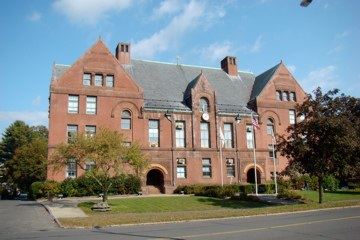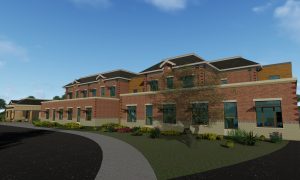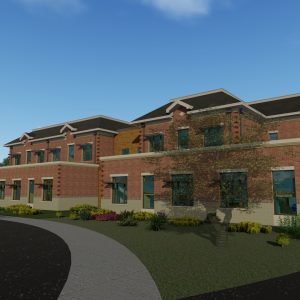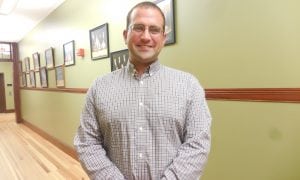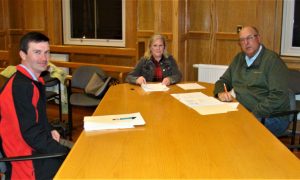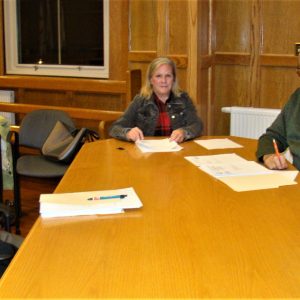WESTFIELD — When nobody showed up at the Nov. 23 City Council public hearing on the tax shift, the proportion of the local tax levy to be borne by residential and commercial properties, the hearing closed after two minutes, and the discussion resumed an hour later when the council opened its meeting.
With rising property values set to place more burden on homeowners, councilors voted to move the shift slightly in favor of residential properties, but rejected a request from the mayor to use $2 million from free cash to reduce rates, in a 7-4 vote with no discussion. Voting in favor of the transfer were councilors James Adams, Dan Allie, Cindy Harris and Bridget Matthews-Kane. The city has $9.5 million in certified free cash available.
City Assessor Robin Johnson said there were 425 qualified sales of property last year. She said the average value of residential properties went up 6 percent, condominiums up 2 percent, residential land up 6 percent, but commercial properties did appreciate in value.
Johnson also said there were 12 new houses built, which is less than in an average year, 18 new condos, and $2.2 million in new growth. She said some tax increment financing agreements are expiring, and there are now only seven TIFs on the books, not including the recent agreement made with James Hardie Building Products in October.
Westfield charges different tax rates for residential property and commercial property, with the ratio between them adjusted every year. As residential valuations are increasing, the tax bills for the two different classes of property would grow at different rates from fiscal 2021 to 2022 if the shift were not adjusted, said Johnson.
“I would recommend shifting a bit to the commercial side,” she said. She said leaving the shift at 1.66 would result in commercial properties paying less next year, and the elderly who remained in their homes will be paying more. She predicted that home values will increase even more next year.
At-large Councilor Cindy Harris proposed moving the tax shift to 1.71, which she said meant that tax bills would go up on average $138 per year for residents and $20 for commercial properties.
At-large Councilor Dave Flaherty challenged that figure, saying he showed at 1.71 an average $356 increase for commercial properties of $618,000, with a commercial tax rate of $36.95 per $1,000 assessed value.
Harris said her numbers came from a chart from the assessor.
Ward 1 Councilor Nicholas Morganelli Jr. said the tax shift is always a difficult decision.
“We want to be good to the residents; we want to be good to the business owners,” he said. “Any tax shift that is an increase for the business side will send a message that we’re not business friendly. Personally, as a resident, I’d rather pay more to have the businesses feel good about the decision they made, so we can promote business to come to Westfield and keep business growing. I would be opposed to 1.71.”
Flaherty also said the Chamber of Commerce Business Advisory Committee, of which he is a member, asked that the council not increase taxes on businesses.
“During COVID, many of them had to pay taxes even if they were shut down. That was a lot of money spent. As you heard, commercial values aren’t going up,” he said, adding, “If you want to control tax increases on homeowners, you have to do it in June,” by passing a smaller city budget.
Flaherty said the amount of additional money the city has to collect in property taxes next year is $2.96 million, and that is after using $1 million from free cash, unspent money left over from previous budget years.
“The good news is there is just over $2 million in new growth [tax receipts]. Taxpayers are only paying $926,000 more, a 1.1 percent increase across the board,” he said.
Flaherty noted that personal property — equipment and inventory held by businesses, and taxed at the commercial rate — was a big part of the new growth, and Eversource alone had a value increase of more than $14 million in new lines and infrastructure, which he said are almost completed being built.
“We’re not seeing a rising tide. To try to tax businesses more when their values are declining isn’t fair to the businesses, either. That new growth really is dependent on personal property, one of the biggest things we gave away with the Data Center,” Flaherty said.
Ward 6 Councilor William Onyski agreed that individual businesses have varying abilities to handle a tax increase.
“It’s unfortunate when we talk about business in Westfield that the little business downtown is paying the same tax rate as Home Depot and Walmart,” Onyski said. “Home Depot stock was at 273, now 408, a 50 percent increase. The big stores are making money. It’s unfortunate, but I will support the 1.71 shift. It gives the residents a little bit of a break. I will support the residents.”
Harris said if the argument is that businesses should get a tax break, she would support a 1.70 split, at which the residents would have an average $152 increase, and the businesses would go down $115.
At-large Councilor Kristen Mello said she agreed the discussion should be had in June.
“It was a very hard year for businesses; also an exceptionally hard year for seniors. Nobody got more money to cover these bills. While I generally agree we need to be business friendly, we can’t tax people out of their homes. I’m inclined to support Councilor Harris’ motion,” Mello said.
Flaherty said to save the average homeowner $13 a year, it costs the average business $133 with each tick. He then proposed to amend the shift to 1.68, which is more favorable to residents than the current 1.66, but less than the proposed 1.70 or 1.71.
Harris said at 1.68, the average increase for residents with a $257,000 home would be $177, and the average commercial business of $615,000 would decrease $381.
The council passed the 1.68 shift with councilors Brent Bean II, Michael Burns, Harris and Onyski voting no. Harris said at the tax shift of 1.68, residents on average will have had an increase of over $300 in two years.

